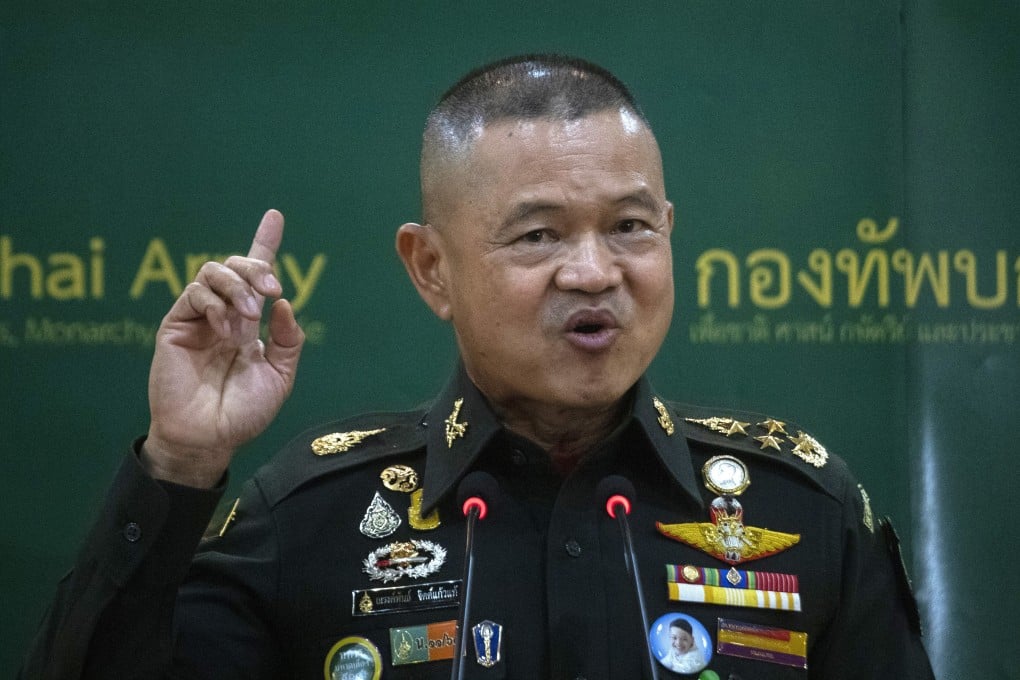Thailand’s new army chief rules out coup, defends monarchy
- General Narongpan Jittkaewtae did not directly criticise anti-government protesters, but said Thai society should tolerate those with different beliefs
- Meanwhile, protest leaders marked the anniversary of the 1976 massacre in which 46 student protesters were killed in a rally against a military dictator

General Narongpan Jittkaewtae took his post on October 1 in an annual military reshuffle as the government faces a challenge from mass protests that include unprecedented calls for reforms to the revered institution of the monarchy.
The position of army commander carries enormous political influence, since the military has staged more than a dozen successful coups since Thailand became a constitutional monarchy in 1932.
Speaking at his first news conference, Narongpan did not directly criticise the protesters for their beliefs, instead warning they must respect the rights of others and accept the consequences if they violate the law.

02:40
Weekend of anti-government protests in Thai capital Bangkok continue to challenge monarchy
Asked whether the protesters’ 10-point manifesto for royal-related reforms is a threat to the monarchy, Narongpan avoided a direct answer, declaring that reform is a positive thing but everyone should look at themselves first before asking others to change. He said Thai society should have tolerance for people with different beliefs.